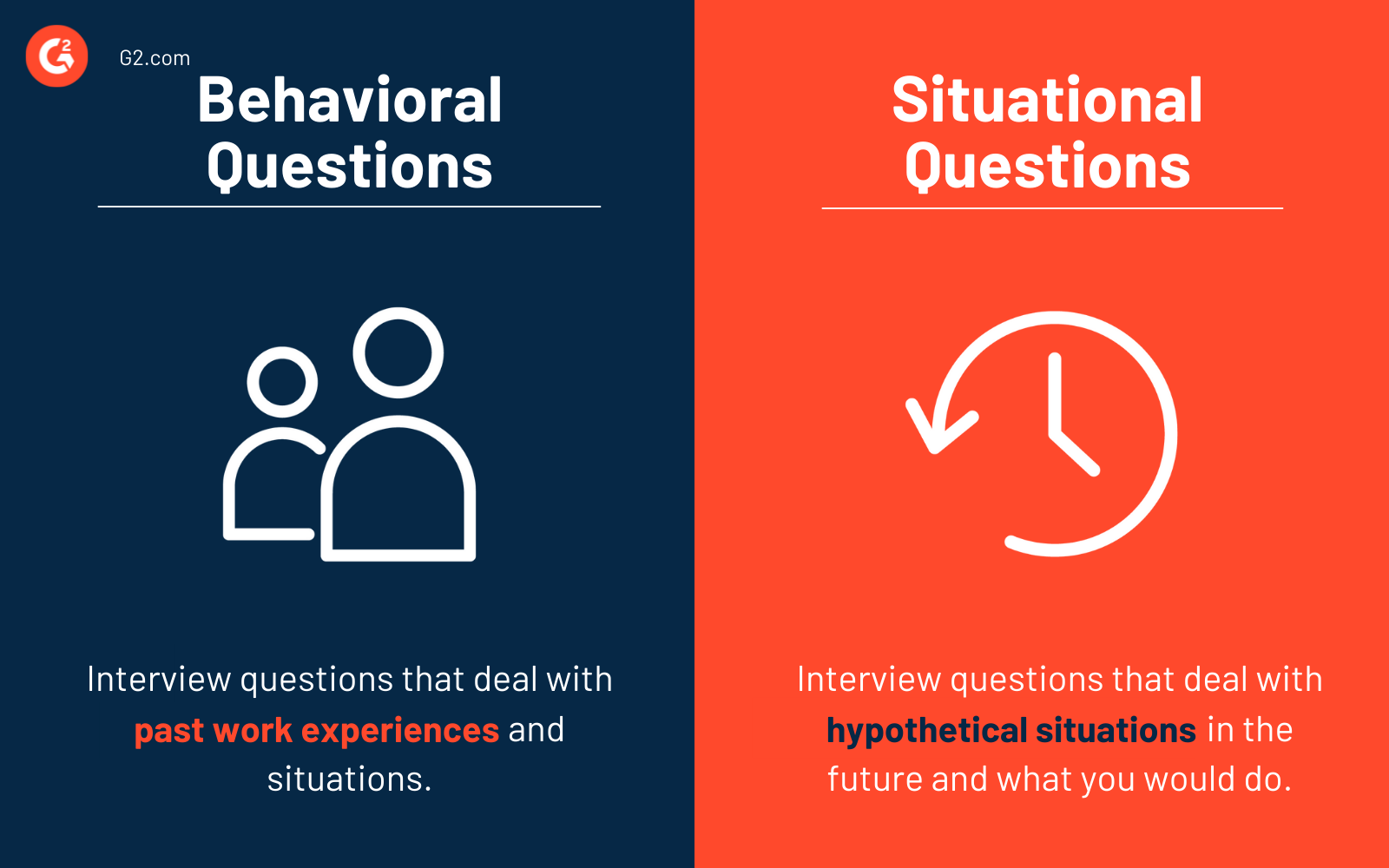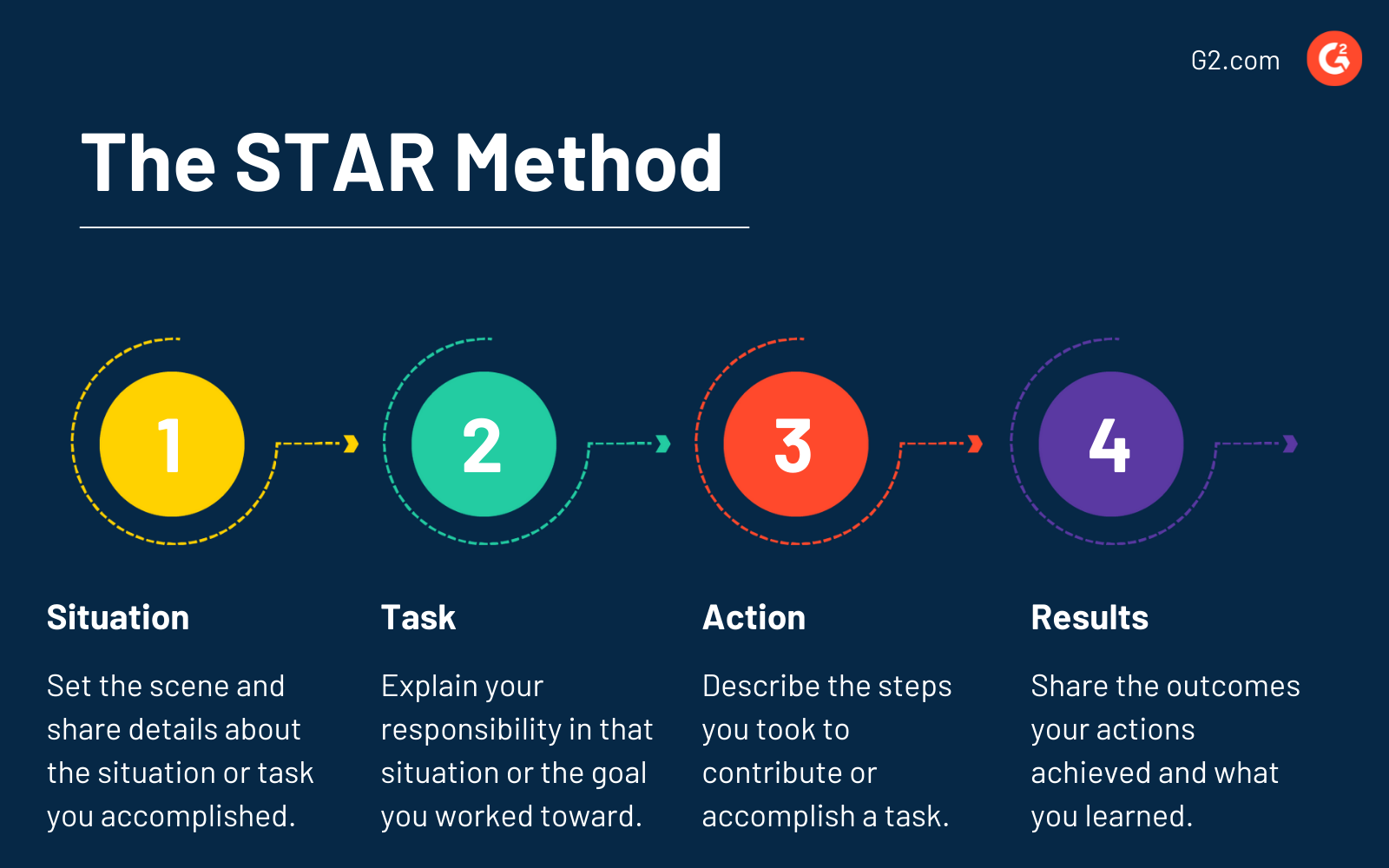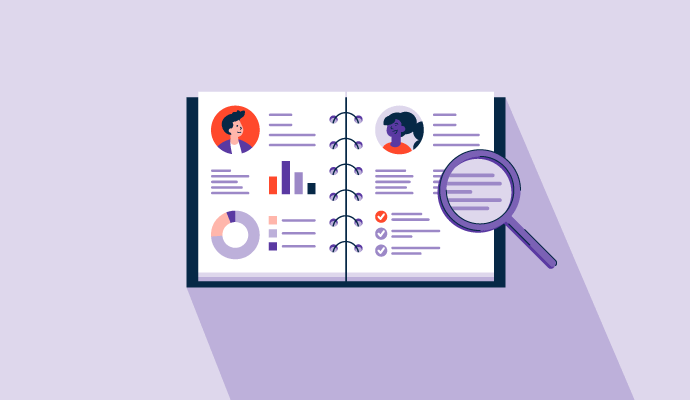Searching for a new job can be incredibly stressful.
Not only does it take time and effort to sift through job sites, but you also have to make sure your resume is up to date and practice your interviewing skills. Interviewing is a significant part of the recruitment process, so it’s in your best interest to be as prepared as possible.
To prepare, consider briefing yourself on common behavioral interview questions that may arise as you talk to the hiring manager.
What are behavioral interview questions?
Behavioral interview questions are focused on how a job candidate handles specific situations in their current or past role. The answers reveal skills, knowledge, and abilities, as they call on real examples and experiences, not hypothetical scenarios.
From problem-solving to time management, there are many different questions interviewers use to gauge your professional experience and how it relates to the role you’re interviewing for. Let’s make sure you’re prepared with a complete understanding of these types of questions.
Behavioral interview questions vs. situational interview questions
As you embark on your job search, you should expect two types of questions in an interview: behavioral and situational. The interviewer, recruiter, or hiring manager will likely make good use of both to make sure you’re right for the job and fit in the company culture.
Behavioral interview questions focus on your past work experience and the situations you found yourself in. Instead of being hypothetical, they require concrete answers with specific examples. Situational interview questions do deal with hypothetical situations that you may encounter based on the job description.

As you answer, consider your hard and soft skills and showcase your strengths, personality, professionalism, and level of experience.
Want to learn more about Document Creation Software? Explore Document Creation products.
Why you should be prepared for behavioral interview questions
Few things are certain when you interview for a job, but one thing you can count on is that there will be at least one behavioral question. Since these questions are designed to learn how you respond to specific work situations and how you solve problems, interviewers find them beneficial to learn how your past success may indicate success in this new role.
Providing concrete answers that refer to real work situations will help determine whether you’re right for the job and should move along to the next phase of the hiring process.
How to use the STAR method to answer behavioral interview questions
At the end of the day, only you can come up with the right answer to a behavioral interview question. But there is an approach you can take to make sure your answer is on-par with what the hiring manager is looking for.

The STAR method is considered the easiest way to answer behavioral questions. When using the STAR method, each answer should follow the same structure:
- Situation: Describe and share details about a specific situation that happened or a task you accomplished.
- Task: Explain your responsibility in the situation, describe the task you had to complete, or elaborate on the goal you worked toward.
- Action: Share the action you took to complete the task or contribute to the situation.
- Results: Discuss the outcome of your actions and what you learned along the way.
To better understand the STAR method, let’s use it to answer a common behavioral interview question.
Question: Describe a long-term project you managed. How did you make sure everything went according to plan?
Situation: At my current company, I manage a graphic design team that was tasked with redesigning one of our biggest clients’ websites. Typically, a project of this size would take roughly three months, but this client wanted more elements and a lot of unique features. So, we needed to manage our time wisely to accomplish this goal.
Task: We let the client know that we had a deadline of 14 weeks. It was up to me to ensure everyone on the team used their time as efficiently and productively as possible.
Action: Before the team jumped into designing, I wanted to plan out the details by week. After communicating with each designer, we split the workload by strengths and deadlines, giving us the best chance for success. We left some wiggle-room at the end for modifications, updates, and unforeseen bottlenecks.
Results: At the end of the 14th week, we finished the redesign and presented it to the client, who was extremely satisfied with the result. A few months later, the client referred us to another organization for their design needs, further demonstrating how happy they were with our work.
Common behavioral interview questions
As you prepare for your job interview, have an answer or two in mind for the most common behavioral questions. While there’s no way to know which ones will be asked, you should familiarize yourself with these common questions, think about past experiences and challenging situations, and brainstorm answers.
Teamwork
Interviewers want to know how you interact with others, whether the role calls for working directly with coworkers, clients, customers, or key stakeholders. As you answer, stick to using “I” statements and share how you contributed to a successful team.
Common teamwork questions:
- Share a time you had to collaborate with others who have different personalities than yours.
- Share details about the best presentation you ever gave. What made it so good?
- Tell me about when you felt like you were a strong, successful leader.
- Share a time when you needed information from a coworker who wasn’t responsive. What did you do?
- Describe when you worked as part of a team on a project. Explain your role and how you contributed.
- How did you handle a time when team members disagreed with you?
- Describe when you and your team members had to compromise on an issue. What were the results?
Time management
Employers are likely to ask questions about time management to better understand how you handle various responsibilities, prioritize tasks, and delegate work to meet deadlines and goals. As you respond, consider how you go about your to-do list and highlight how you stay organized at work.
Common time management questions:
- Tell me about a goal that you accomplished and how you achieved it.
- Tell me about the last time a workday ended before you were able to get everything on your to-do list done.
- Share an example of when you had to juggle multiple responsibilities at once and how you prioritized your time.
- How do you estimate how long it will take to complete a task or project?
- Describe a long-term project that you kept on track. How did you keep everything moving?
Adaptability
Things can change with very little notice, and employers want to find how you adjust. The goal when answering these questions is to demonstrate growth and share specific examples you’ve dealt with in the past.
Common adaptability questions:
- Tell me about a time you had to learn something new quickly.
- Can you share a time when you had to be flexible or adaptable?
- Share details about a time you had to be creative to find a solution to a problem.
- Share more about how you work under pressure.
- Describe a time when you made a mistake or overlooked a solution to a problem. What did you learn?
- Tell me about settling in to your last job. What did you do to learn the ropes during the first few days?
- Share a time when you had to embrace new technology, processes, or thinking that was a major departure from the previous way things were done.
- Tell me about a time you were assigned a task outside of your everyday responsibilities. How did you handle the assignment?
Communication
Your ability to communicate with others says a lot about who you are in your professional career. In the interview, discuss your communication skills with the recruiter and share details about times you had to communicate both verbally and in writing. Employers want to make sure you can effectively communicate with others, so be ready to answer questions about how you are as a communicator.
Common communication questions:
- Tell me about a time when you had to say no.
- Give me an example of when you had to manage up.
- Share with me a time you had to build rapport with a coworker, client, or customer who had a different personality than yours.
- Share a time when you had to persuade someone at work to see your point of view. Was the outcome positive?
- Can you share a time when you had to deliver bad news to someone? How did you prepare and what was the outcome?
Overcoming challenges
Employers will ask how you’ve overcome various challenges in the workplace to understand your level of perseverance. The goal here is to find out how you manage yourself in stressful situations, so answer these questions by telling a personal story about a specific instance. It’s best not to be too general with these answers, but instead, share what you learned or what you’d do differently next time.
Common questions about overcoming challenges:
- Tell me about a time when you handled a difficult situation.
- Tell me about a time when you made a mistake. What would you have done differently?
- Can you share details about a time when you had to make an unpopular decision and how you were able to implement it?
- Tell me about a goal you failed to achieve.
- Share with me a time you went above and beyond, for yourself or for others.
- Describe a time you presented a new idea to management, but there wasn’t buy-in. What did you do next? Were you able to change their minds?
Motivation, ethics, integrity, and values
An employer wants to understand what motivated you, what your values are, and learn more about your ethics and levels of integrity. This helps them know what you’re passionate about, what excites you, and how you stay focused. How you answer will tell them if you’re a good match for the company’s culture, mission, and style of work.
Common questions about motivation, ethics, integrity, and values:
- Provide an example of how you set goals.
- What is your proudest professional achievement? Why is this meaningful to you?
- Was there ever a time when a client, customer, or teammate questioned your honesty? How did you react?
- Share a time when it was difficult to be honest because of a particular situation. What was your thought process?
- Have you ever had to follow a rule you didn’t agree with? Why did you follow it? How did it make you feel?
- Share a time when a coworker was doing something wrong and what you did about it.
Conflict resolution
No matter what type of job you’re interviewing for, there’s bound to be tension. As you answer these questions, highlight a situation where you took the lead to resolve a conflict – but avoid painting the other person negatively. The goal here is to show how you can handle an issue with someone and reach an understanding professionally.
Common conflict resolution questions:
- Tell me about a time when you disagreed with your manager or supervisor.
- Share a time when you had to stand up for something you believed in.
- Tell me about a time when you had a conflict with a peer or coworker and how the situation was resolved.
- Was there a time when you wished you would have handled a situation with a coworker differently?
Growth potential
During a job interview, be ready to discuss past work experience that deals with growth potential. An interviewer will want to know how you’ve grown in your role and the goals you have for your future.
Common growth potential questions:
- When was the last time you asked for direct feedback from your manager, and why?
- Describe a time your manager wasn’t around and a problem developed. How did you handle it and what were the results?
- What is the biggest career goal you’ve achieved recently?
- Have you ever been passed up for a promotion?
Is that your final answer?
Before you go to your next interview, consider how you’ll answer behavioral interview questions and how these answers will set you apart from other candidates. Preparing answers and examples ahead of time might be what moves you into the next round of the hiring process.
Don't overthink it! Remember that you have the skills the hiring manager is looking for. Use the STAR method when you can and don’t forget to thank the interviewer for their time.
Feeling virtual? Learn more about video interviewing and how to use it to your benefit.

Mara Calvello
Mara Calvello is a Content and Communications Manager at G2. She received her Bachelor of Arts degree from Elmhurst College (now Elmhurst University). Mara writes content highlighting G2 newsroom events and customer marketing case studies, while also focusing on social media and communications for G2. She previously wrote content to support our G2 Tea newsletter, as well as categories on artificial intelligence, natural language understanding (NLU), AI code generation, synthetic data, and more. In her spare time, she's out exploring with her rescue dog Zeke or enjoying a good book.
